- Home
- Brian Garfield
Marshal Jeremy Six #4 the Proud Riders Page 10
Marshal Jeremy Six #4 the Proud Riders Read online
Page 10
Chavis said, “John?”
“What?”
“Goddam it, I’m taking this like a sulky little kid.”
“I guess you are, Tracy.” So am I.
“John.”
“What, dammit?”
“Thanks. Thanks, partner.”
“Yeah,” Paradise said. Feeling sour, he went over to the door and palmed the knob. “Getting late. I’m going to turn in.
Connie stood up. “I’d better go too. You need your rest, darling.” She bent to kiss Chavis. Paradise looked away.
She came around the foot of the bed and joined Paradise at the door. They were walking out when Chavis spoke again:
“Hey, Connie.”
“Yes?” she turned around.
He said, “I just wanted another look at you.”
It made her smile. Paradise reached past her and pulled the door shut.
When they went outside and said good night to the doctor, Paradise gave her a hand up into her saddle, mounted his own horse and said, “I’d better ride down to the stables and give the palomino another workout.”
“It’s awfully late,” she objected.
He wasn’t looking at her. He said, “Not much time left to get that horse in shape.”
“I suppose not. John, thank you for offering to ride for Tracy.”
“He wouldn’t have let me talk him into it, if you hadn’t been there to back my play.” He added reluctantly, “He’s crazy in love with you, you know.”
“I know,” she said simply.
He added in an aimless tone of voice, “You take care of him, hear?” And suddenly reined away from her and broke his pinto into a dead-run up the street.
Connie watched him until he disappeared around a corner. Her face was remotely sad when she turned toward the hotel and gigged her horse gently along the street.
Chapter Eleven
It was not a very good morning for Jeremy Six.
Judge Harris had come down, at last, from Prescott, and it was Court Day in Spanish Flat. The judge was a deliberate man who organized the cases on his docket with strict regard to date of arrest and date of charge-filing, so that Six had to wait around, occasionally giving testimony, while Judge Harris carefully heard the complaints against three drunk-and-disorderlies out on bail, one disturbing-the-peace, one petty larceny, one grand theft (a cow), and a case of armed robbery which the judge reduced to drunk-and-disorderly after it was determined that the defendant had been refused a drink in his favorite saloon, whereupon he had drawn a gun and demanded a bottle of whisky. “If you called that armed robbery,” the judge remarked, “the jails would have to get big enough to hold half the population.” Only then did Judge Harris get around to the two cases that Six felt were worth bothering with.
The first, People vs. Seth Lockhart, was dispensed within five minutes. It came as no surprise to Six, but he could not help feeling sour and disappointed. “Case dismissed for lack of evidence,” said the judge. He gave Six a glance that spoke just as clearly as any verbal reprimand.
Ike and Malachi came forward to the rail: Malachi’s grin was as grim as ever; his father gave Six an impudent look of triumph, shook Seth by the hand, and reached into his pocket to hand over a fistful of money to the lawyer who had defended Seth.
Beside Six, deputy Dominguez said softly, “Ike wasn’t taking any chances, was he? Imported that slick mouthpiece all the way from Tucson.”
“I still think none of this was Ike’s idea,” Six answered. “There they go. Tail them, will you?”
Dominguez nodded, reached for his hat, and left the courtroom quickly.
“People vs. John Paradise.” It dragged on for two hours. Six testified wearily, went back to his seat and watched the proceedings unfold with a jaundiced glance. It was obvious that Paradise would be acquitted in the hearing, eyewitness testimony was plentiful—the kid (nobody had found out his name) had obviously come gunning for Paradise, and there was nothing Paradise could do but defend himself. Six thought: I can’t complain about this one, but it gravels me to see a cocky little killer like Paradise walking around free.
It graveled him to see the Lockharts walking around free, too. Jeremy Six had a fundamental sense of right and wrong; he couldn’t help it, he just didn’t like Paradise or his kind: he didn’t like what Paradise stood for. And the same was true of the Lockhart clan.
He sympathized less with Paradise, though. Paradise was up there making his own defense, pleading by himself without use of a lawyer, and that was all right because Paradise was an educated man; he was fully capable of handling his own case. Six thought, a bit drily: He’s had plenty of experience, I imagine. Plenty of practice.
That was what annoyed him about Paradise. Paradise wasn’t stupid. He wasn’t a backwoods hayseed raised on forest feuds and jungle values. Paradise was a smart man, clever and thoughtful—And he ought know better, by God!
No, Six thought, watching the slight, one-armed gunfighter unreel his convincing arguments before the judge. No, there was no way to sympathize with John Paradise. Six just didn’t like him, that was all.
The prosecutor got up and started to launch into a long harangue about Paradise’s reputation for troublemaking, his many killings, the general worthlessness of his soul. Six thought, that’s all very true but it’s not going to get him convicted. And finally the judge, after politely listening to everything the prosecutor had to say, banged his gavel and said:
“It gives me no particular pleasure to say this, but the facts seem clear in the case and I’ve no choice. It’s the finding of this court that the deceased met his end as a result of an act of violence precipitated by himself, and that the defendant John Paradise acted in self-defense. Court finds no basis for continuing to hold defendant in custody. You’re free to go, Mr. Paradise.” The judge said the last with evident displeasure.
It was the last case on the docket. The courtroom cleared. Six exchanged a few pleasantries with the judge and the prosecutor, and presently went outside to the street. John Paradise was waiting for him. Six regarded him without friendliness; Paradise said mildly, “I’m really a likeable fellow, Marshal, if you give it a chance.”
Six made no answer. Paradise tugged his hat down, fell into step beside Six, and said, “It’s a funny thing. I’ve never in my life been convicted of so much as a misdemeanor. And yet you lawmen are all alike. You hate the sight of me.”
“It’s people like you who rot up the world, Paradise.”
“Strong talk,” Paradise observed.
“And it’s people like you who make my job a lot more unpleasant than it has to be.” Six stopped and turned to face the smaller man. “Look, Paradise. Don’t try to get on my good side. I know your breed too well. You deliberately set out to build up a reputation as a fast gun, because that way you can command top gun wages.”
“I’ll admit that. Same thing’s true in any line of work.”
“You don’t get paid to kill, in another line of work.”
Paradise said gently, “How about your line of work, Marshal?”
Six’s eyelids narrowed down. “I’ve heard that one before, too. It’s a fallacy. I don’t get paid to kill. I get paid to do everything I can to prevent killings.”
“What of it?” Paradise said. “I never hired out specifically to kill anybody. I’m not a murderer for hire, Marshal.”
“Amounts to the same thing. If it hadn’t been for your reputation, that kid wouldn’t have come after you. He wouldn’t have got killed.”
“What you mean is, he wouldn’t have got killed in your town. Face up to it, Marshal. If it hadn’t been me it would have been somebody else. That kid was itching to die.”
Six turned on his heel and started down the street again. Paradise caught up and said, “Why argue the point?”
“Why are you so anxious to change my mind?”
“Because you’re wrong about me,” Paradise answered. “But that’s not the reason I waited for you back there.”
<
br /> “What is?”
Six gave him a bleak look. He went on as far as his office, not speaking again, and went inside, took Paradise’s rolled-up gunbelt out of his desk drawer and dumped it on top of the desk.
“Help yourself.”
“Thanks,” Paradise said drily. He picked up the belt, hooked one end of it inside his waistband and flipped the tongue around his back. He had to pinch it between his hip and the desk while he reached around behind him with his one hand; finally, awkwardly, he got it buckled around him and settled it down around his hips. Then he took the gun out, flipped the gate open and turned the cylinder a click at a time to inspect the loads.
“By the way,” he said off-handedly, “I’ll be riding Tracy Chavis’ horse for him in the race. I don’t suppose that’s a misdemeanor, is it?”
It was the first Six had heard of it. All he said was, “Tracy’s a good man but he picks bad friends.”
“One day,” Paradise answered, “I’ll change your mind, Marshal.”
He puzzled Six. Six shook his head and said, “I don’t get you. Why should my opinion matter?”
“Because you’re a good man,” Paradise said. “I’d like you for a friend.” He slipped his gun into its holster, turned and walked out of the office.
Dominguez came into the office and said, “All three of them Lockharts settled down in the Drover’s Rest. They’re playing cards with Macquarie and Craycroft and a couple others. Funny thing—you know it was Paradise killed one of Ike’s boys, and they think he killed another one too.”
“The one Chavis shot.”
“Yeah. You’d expect them to go gunning for Paradise. He came in and had a drink and all they did was look at each other. I was primed for a big battle but it never came off. Paradise just walked out of the place and the Lockharts went right ahead with their card game.”
Six said, “All right, keep an eye on them.” He reached for his hat, left the office, and went back into Cat Town to make his early rounds.
While he tramped the boardwalks he puzzled it out, trying to discover what strange determination could keep Ike and his two sons from starting a fight with Paradise. Ever since Ike and Malachi had ridden into town, there had been a rotten smell in the air. Nothing about them seemed to add up. Six knew them well enough to know that the way they were acting just didn’t fit into the pattern. They never did what he expected them to do. And that, for a peace officer, was an explosively dangerous situation.
Two blocks away down Williams Street he saw an enormous shape standing in the dust outside the livery stable, wearing a fancy coat and a stovepipe hat. That was Harry Rose, fat and oily. Rose was talking to his big, hard-muscled bodyguard, Mr. Clete. There was something furtive about the way Mr. Clete kept looking over his shoulder. When he spied Six, he very definitely stiffened; he said something, and Rose’s fat face came around toward Six.
There was, Six thought, a feeling in the air very much like the feeling just before a blizzard. Everything was threatening, yet everything was deceptively calm. The town, as ugly and lonely as the land around it, sat sleepy in the late afternoon sun, and there was nothing a man could see or touch that indicated any danger at all. Yet Six felt the hairs at the back of his neck stir, as if a cool current of warning had come from the alleys to quicken his alertness and hone his instincts.
Troubled, he made his rounds: Fat Annie’s, the Longshot Dance Hall, the Tres Candelas cantina. All was quiet. In the Occidental a drunken miner was making trouble for the bartender: Six calmed him down and steered him outside, toward Mrs. Murphy’s boarding house. “Get yourself some sleep, bucko, and the world will look a lot brighter.”
He went on, finally reaching the Glad Hand. There was practically nobody in the place. Clarissa stood in the office door, watching the spidery hands of Nimble-Finger Buchler at the piano. Buchler liked to play good music when nobody was around to be upset by it. He was playing something by Bach. Clarissa’s eyes were half-closed; passively, she was letting the music thread through her.
When Six came in she gave him a blinding smile. It was, he thought, as good as a kiss. It was a smile she reserved for him. He wished he could respond to it, but the best he could summon up was a weak thin smile that touched his cheeks and fled quickly.
She said, “What’s wrong?” and he only shook his head; he went back into the office and sat down on the divan, hat on his knee. Clarissa left the door slightly open so that the quiet sound of the piano would reach into the office. She said, “Your face looks as if it could hold a three-day rain.”
“I’ve heard that before someplace.”
She said gently, “I wish I could help.”
“I don’t even know if I need help.”
“Then what’s the matter?”
“I feel as if I’ve got lighted sticks of blasting powder in both hands. The town’s full of troublemakers but nobody’s making any trouble. I’ve never seen it like this before. Nothing seems to make sense anymore.”
She came across the room, sat down on the edge of the divan and pushed him back until he was lying with his head at one end of it. Her hands massaged his shoulders and she said, “Maybe all you need is to relax. Try not to think about any of it for a while.”
He gave in: he closed his eyes and let himself drift. Maybe after all, that was what he needed. To get a little distance between himself and all the rest of it. Maybe he was too close to everything to be able to see what was going on. Under the warm soft easy touch of her hands he felt all his muscles go loose; he stretched at ease for the first time that day.
He was starting his second rounds of the evening, shortly after sundown, when a hurrying figure attracted his attention and he turned that way, up the side street. The man in the shadows walked quickly forward and said in a subdued voice, “Glad I found you.” It was Bob Tell, the Wells Fargo manager. Tell’s hands were busy fooling with his empty pipe, “That stage is just in.”
“What?”
“The coach with the army payroll.”
“Oh, God.”
“Yeah. The boys are loading it into the safe now. We’ve got four shotgun guards on the coach, but they’ll be moving on as quick as they can. It would be a dead giveaway if we had a bunch of armed guards hanging around the office.”
Six thought about it. He had, in fact, been thinking about it a good deal for the past week. Now he said, “It would be just as much of a giveaway if my deputy or I hung around, Bob.”
“Well, we can’t leave it unguarded. I mean, I ain’t exactly an expert with a gun. And none of the other boys in the office are fighting men to speak of.”
“What about the safe?”
“As good as they come,” said Bob Tell, “but there’s never been a safe made that couldn’t be blowed.”
A jingle ran haplessly through Six’s head: Never a horse that couldn’t be rode, and never a cowboy couldn’t be throwed. It made him think of Chavis, which made him think of Paradise, and his face became a little more sour than it had been.
“I don’t feel any better about this than you do, if that’s any help.”
“No help at all, I’m afraid,” Six said drily. They turned into Center Street and walked with long strides toward the Wells Fargo office. “How long do we have to incubate these eggs in the nest before they hatch and fly off to the army forts?”
“Tonight’s the first of the month, ain’t it? We’ve got tomorrow and two more days after that. That takes us through the Fourth. Say one more day after that, to allow all the dispatch riders to get here. Four days, maybe four and a half at the outside. I don’t guess any of us’ll be getting too much sleep.”
“Sixty-five thousand dollars,” Six intoned.
“Uh-huh. About three hundred pounds of gold.”
“How’s it put up?”
“In sacks. All different sizes. Each sack’s got the name of a fort on it. It’s in coin, of course—not bullion. Pity about that. Bullion would be harder to steal because it’s bulkier and heavier. You
can divide up a pile of coins but you can’t split up an ingot.”
“Well, we’re just going to have to live with it,” Six told him. They came around the corner just in time to see four armed men climb into the stagecoach. The driver said, “Any freight for Prescott, Bob?”
“Not a thing.”
“Then we’ll be on our way,” said the driver. He cracked his whip and yelled. The stage swayed away from the office, lurching and bucking, leaving a high wake of powder dust and a diminishing racket of hoofs.
Inside, Bob Tell’s two assistants stood wide-eyed and sweating, nervously glancing at the big iron safe in the corner. When Bob Tell walked in the first thing he said was, “I’m surprised they managed to fit all of it inside.”
“Just barely made it,” one of the clerks said.
Six propped his hip against a corner of Tell’s desk and said conversationally, “It’s possible somebody saw your men carrying the gold in here tonight, and guessed what it was. So we can’t assume it’s a secret. But we can do our best to keep from spreading it around. If any of you boys gets liquored up and lets word slip, I’ll personally nail strips of your hide to the depot door. Is that clear?”
Tell fumbled with his pipe. The other two avoided Six’s glance. He said, “If that’s settled, let’s get down to cases. I want two of you in here at all times. That means each one of you is on duty sixteen hours a day, in staggered shifts. The third man sleeps on a cot in the storage room. You’re going to have to handle most of this by yourselves, because if I posted extra men down here it would give the whole thing away. But I’ll try to make it as safe for you as I can.”
He pushed his hat back and went on: “I’m going to station Dominguez and Bill Dealing next door in the shop room of Crawford’s gun shop. From that window they can watch the front door here and they’ll see anybody who goes in or out. They’ll be armed with eight-gauge shotguns and rifles. If anybody suspicious comes in here, they’ll come out through the gun shop window. It won’t take them more than five seconds to get in here. All you’ve got to do is stall for that length of time if anybody tries to hold you up.”

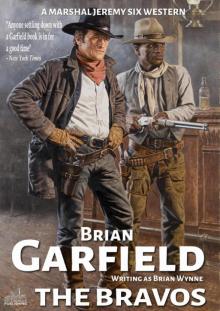 Marshal Jeremy Six #3
Marshal Jeremy Six #3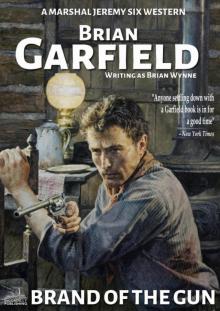 Marshal Jeremy Six #6
Marshal Jeremy Six #6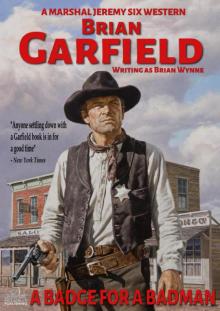 Marshal Jeremy Six #5
Marshal Jeremy Six #5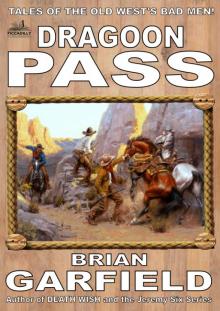 The Outlaws 2
The Outlaws 2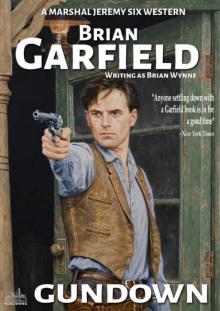 Marshal Jeremy Six #7
Marshal Jeremy Six #7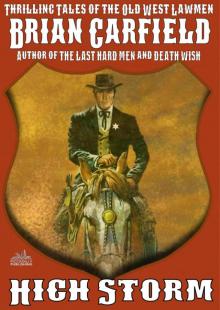 The Lawbringers 4
The Lawbringers 4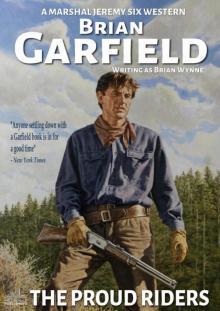 Marshal Jeremy Six #4 the Proud Riders
Marshal Jeremy Six #4 the Proud Riders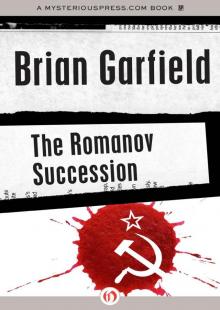 The Romanov succession
The Romanov succession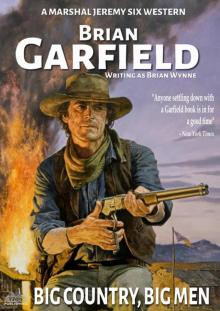 Marshal Jeremy Six #8
Marshal Jeremy Six #8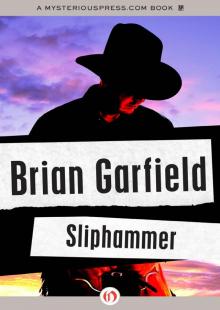 Sliphammer
Sliphammer Line of Succession
Line of Succession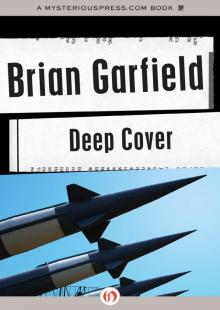 Deep Cover
Deep Cover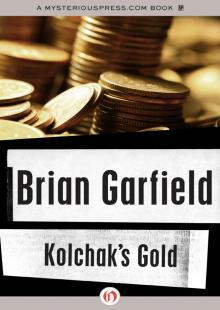 Kolchak's Gold
Kolchak's Gold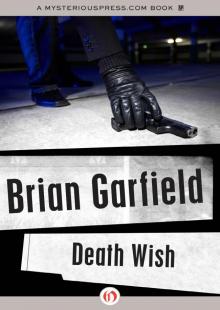 Death Wish
Death Wish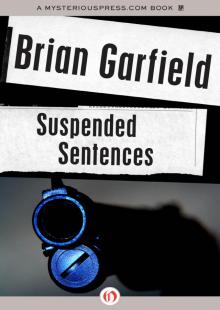 Suspended Sentences
Suspended Sentences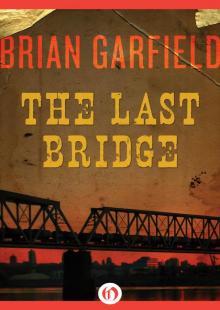 The Last Bridge
The Last Bridge Relentless
Relentless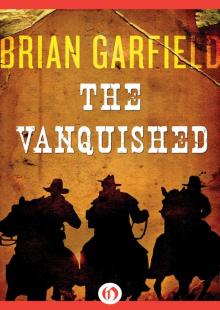 The Vanquished
The Vanquished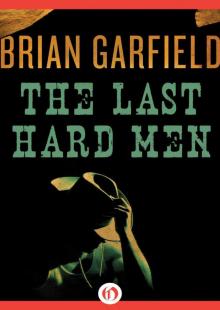 The Last Hard Men
The Last Hard Men Hit and The Marksman
Hit and The Marksman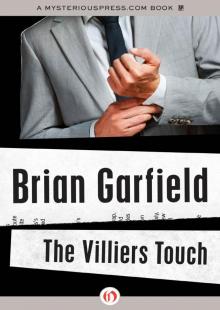 Villiers Touch
Villiers Touch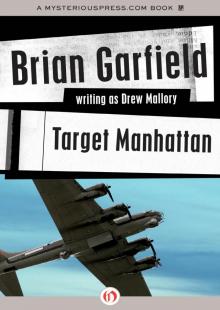 Target Manhattan
Target Manhattan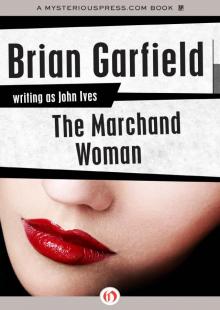 Marchand Woman
Marchand Woman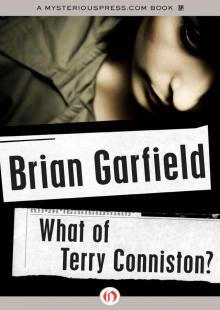 What of Terry Conniston?
What of Terry Conniston?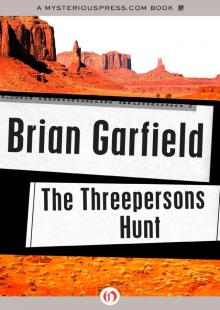 Threepersons Hunt
Threepersons Hunt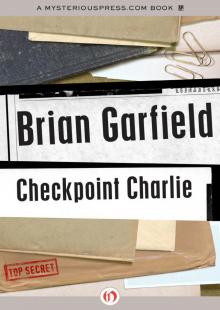 Checkpoint Charlie
Checkpoint Charlie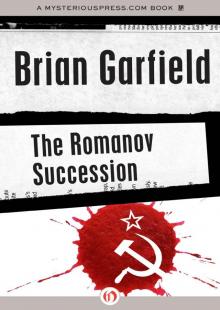 Romanov Succession
Romanov Succession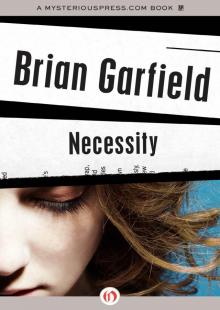 Necessity
Necessity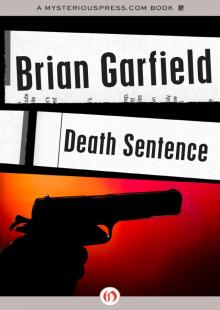 Death Sentence
Death Sentence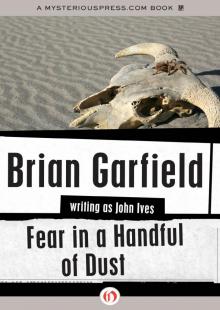 Fear in a Handful of Dust
Fear in a Handful of Dust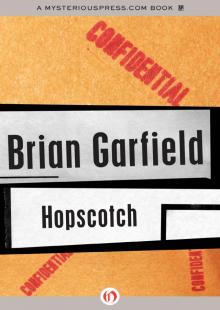 Hopscotch
Hopscotch